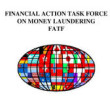Commenting on a bill under review in Congress, Jorge Claude, executive VP of the Association of Insurers, said wider latitude to invest offshore is required in light of the small local capital market.
Tracking the Activities of Global Asset Managers in Latin America

Commenting on a bill under review in Congress, Jorge Claude, executive VP of the Association of Insurers, said wider latitude to invest offshore is required in light of the small local capital market.

Eduardo Morón Pastor, a social security expert, believes the end game of Peruvian lawmakers is to make pension savings voluntary.

The Chilean regulator delisted 34 funds for falling short of the required minimum of USD 100 million in assets under management, while added six mutual funds and six ETFs to the list of approved instruments eligible to receive allocations.

In an interview with Fund Pro Latin America, the head of the Afore association defended the lack of access to pension fund portfolios, citing the competitive operating environment in which the Afores operate.

The proposal would authorize direct investment by AFPs and insurers in infrastructure projects, and no longer require the managers to allocate to local closed-end investment funds.

BNP Paribas led with three mutual funds - three of them Europe Equity products - registered in the month, while New Capital, a fund family belonging to EFG AM, followed with two mutual funds.

Insurers' new ability to allocate a portion of their technical reserves in funds investing in real estate, infrastructure projects, receivables, leasing operations, factoring operations, and private equity pleased Daniel Dancourt, CEO of HMC Capital in Peru.

While iShares led with five ETFs registered in the month, four of them currency hedged products, Edmond de Rothschild (3), Legg Mason (2), Credit Suisse (2), Investec (1), Julius Baer (1) and Lazard (1) won approval for their mutual funds.

The Central American nation was placed on the list in June 2014 after the IMF deemed there were significant flaws in its anti-money laundering policies.

Five funds were added, while 17 were delisted. Edmond de Rothschild led with three mutual funds listed, all of them equity products, followed by BlackRock and NN IP, each with one new fund approved.
© Copyright 2014-2026 | Website by Bower Web Solutions